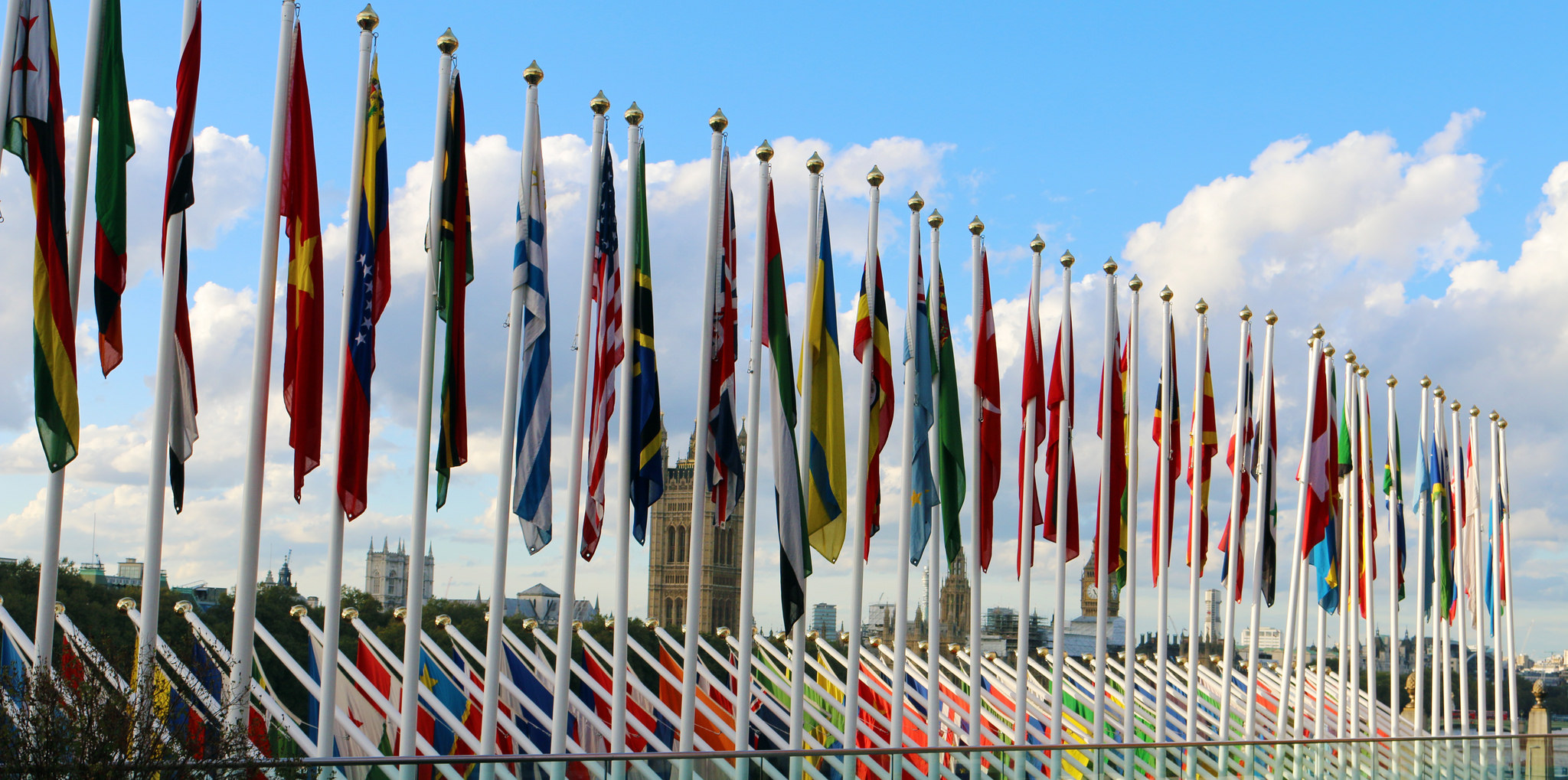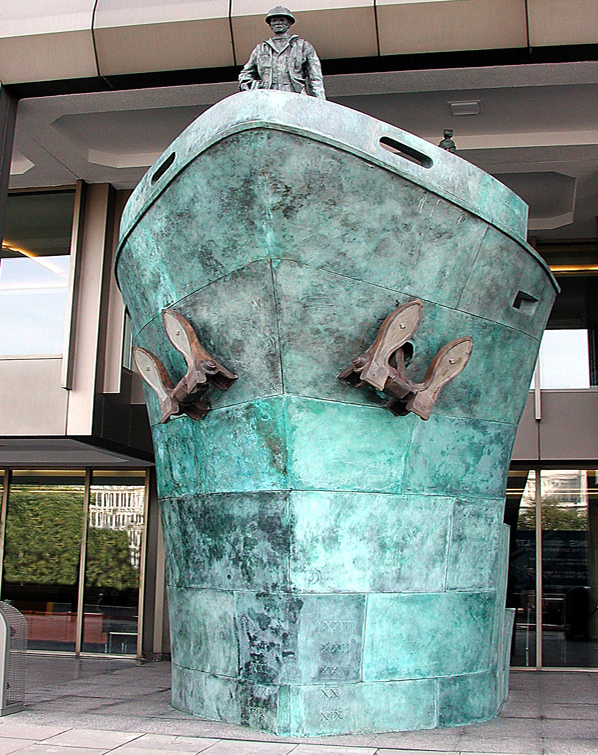International shipping moves towards a low-carbon future
Kitack Lim, Secretary-General, International Maritime Organization (IMO), plots a course towards low-carbon performance for shipping, through mandatory energy-efficiency measures for ships and an emphasis on capacity-building projects that support technology transfer.
Shipping is indispensable to the world. Increased globalisation has fuelled rapid growth in international trade, most of which is carried by ship, bringing people the commodities, fuel, foodstuffs, goods and products on which they depend. With this comes a challenge to ensure that international shipping can move towards cleaner energy, reduce its emissions and support the achievement of the Sustainable Development Goals.
This is not an easy task. Like other forms of transport, shipping is currently largely driven by fossil fuel-powered workhorse engines. And shipping is not a country, it is an industry. Finding an effective way to allocate emissions is not straightforward. Ships can move between different flags as easily as they can sail between different countries. Moreover, demand for shipping is dictated not by shipping operators but by world markets, the ever-increasing desire for goods by consumers and the basic need for raw materials and commodities which can only be moved sustainably by ships.
Nonetheless, the International Maritime Organization (IMO), the United Nations agency charged with regulating international shipping, has already ensured that shipping has embarked on a voyage to a greener future. IMO has ensured that shipping has made a solid contribution towards the reduction of greenhouse gas emissions.
Firstly, IMO has adopted binding technical and operational energy-efficiency measures which apply to all ships globally, no matter where they trade or their flag state. Secondly, by focusing on the capacity-building and technology transfer needed to ensure global application, IMO is supporting countries to implement the international measures effectively and is encouraging research and development of green technology.
And thirdly, IMO member states have agreed a three-step approach towards consideration of further measures to enhance the energy efficiency of ships.
Binding energy-efficiency rules
The mandatory energy-efficiency requirements for international shipping adopted by IMO have now been in
force for over three years, under the International Convention for the Prevention of  Pollution from Ships (MARPOL) Annex VI. Data show that more than 1,900 ships have now been certified as complying with the new energy-efficiency standards for ships built since 2013. Currently, a review of the status of technological developments is under way, to determine the implementation of phase two of the IMO Energy Efficiency Design Index requirements for new ships from 2020. In other words, requirements for new ships could be strengthened further if the technology is there.
Pollution from Ships (MARPOL) Annex VI. Data show that more than 1,900 ships have now been certified as complying with the new energy-efficiency standards for ships built since 2013. Currently, a review of the status of technological developments is under way, to determine the implementation of phase two of the IMO Energy Efficiency Design Index requirements for new ships from 2020. In other words, requirements for new ships could be strengthened further if the technology is there.
To support this work, the project run by the Global Environment Facility (GEF), the United Nations Development Programme (UNDP) and the IMO Global Maritime Energy Efficiency Partnerships (GloMEEP), has developed a comprehensive and freely available IMO Energy Efficiency Technologies Information Portal, which outlines the wide spectrum of ways to potentially reduce ship fuel consumption. These energy-efficiency methods range from engine waste heat recovery and energy-efficient lighting systems – already available – to the use of kites or wind sails, currently at the experimental stage. Raising awareness of mature technologies, such as hull cleaning and propeller polishing to optimise propulsion, and their management, is
key to achieving effective implementation of IMO energy-efficiency measures. Many ship operators are
already adopting ‘Best Available Technology Not Entailing Excessive Cost’ (BATNEEC) and we should see
technologies move from unproven to maturity over time.
However, while much can be and has been done to improve the energy efficiency of shipping, including alternative fuels and potentially renewable energy, nonetheless a +50MW marine diesel engine remains the prime mover for large seagoing vessels. The reliability and ‘power density’ of a marine diesel engine means that the space on board a ship is currently optimised to carry cargo. The use of alternative and/or renewable energy sources may result in less space being available for cargo which could make a ship less than optimal as a commercial proposition. This is, and will be, a challenge for ship designers.
Capacity-building
The GloMEEP project supports the uptake and implementation of energy-efficiency measures for shipping, thereby reducing greenhouse gas emissions from shipping.
IMO is executing this two-year project, launched at the end of 2015, which involves 10 lead pilot countries (Argentina, China, Georgia, India, Jamaica, Malaysia, Morocco, Panama, Philippines and South Africa). GloMEEP aims to create global, regional and national partnerships to build the capacity to address maritime energy efficiency, and for countries to bring this issue into the mainstream within their own development policies, programmes and dialogues.
The project’s three key objectives relate to:
- Legal, policy and institutional reforms
- Awareness raising and capacity-building activities, and
- Establishment of public-private partnerships to encourage technology transfer.
So far, the project has delivered a series of national workshops in some of the lead pilot countries and two global workshops, including ‘train-the-trainer’ programmes which aim to cascade technical knowledge.
Three important technical guides have been specifically developed under the GloMEEP project, in collaboration with the Institute of Marine Engineering, Science and Technology (IMarEST). The guides are: Rapid Assessment Guide for determining the country’s maritime energy efficiency and emissions status (Guide 1); Guide for maritime energy-efficiency strategy development (Guide 2); and Guide for incorporation of MARPOL Annex VI into national law (Guide 3).
A pool of experts, trained by the GloMEEP project in the use of these guides, will contribute significantly to the effective implementation of the energy-efficiency requirements for international shipping in their respective countries. This, in turn, can serve as a model for other countries.
Another exciting project being executed by IMO is the ambitious 10 million IMO-European Union Project on Capacity Building for Climate Change Mitigation in the Maritime Shipping Sector. This four-year project will establish a global network of Maritime Technology Cooperation Centres. The aim is to help beneficiary countries limit and reduce greenhouse gas emissions from their shipping sectors through technical assistance and capacity-building. It will encourage the uptake of innovative energy-efficiency technologies among a large number of users through the widespread dissemination of technical information and know-how. This will heighten the impact of technology transfer.
The four-year project will target five regions – Africa, Asia, the Caribbean, Latin America and the Pacific. These have been targeted for their significant number of Least Developed Countries (LDCs) and Small Island Developing States (SIDS).
To date, 14 potential host institutions have been shortlisted and work is under way to select the five Maritime Technology Cooperation Centres that will be supported financially to carry out specific research and development and analysis projects, including studies on data collection relating to fuel efficiency of ships and emissions in port areas.
 Next steps
Next steps
The output of the capacity-building projects will undoubtedly help support IMO member states as they move through the agreed three-step process towards consideration of any further global measures for international shipping for climate change mitigation.
Governments at IMO’s Marine Environment Protection Committee (MEPC) in April 2016 approved mandatory requirements for ships to record and report their fuel consumption. In simple terms, the system will require ships of 5,000 gross tonnage and above to collect consumption data for each type of fuel they use. The aggregated data will be reported to IMO by the flag state after the end of each calendar year, and IMO will be required to produce an annual report to the MEPC, summarising the data collected. Data would be anonymised so individual ship data would not be recognised.
The proposed IMO Ship Fuel Consumption Database is the first in the agreed three-step approach, in which analysis of the data collected would provide the basis for an objective, transparent and inclusive policy debate at IMO. This would allow a decision to be made on whether any further measures are needed to enhance energy efficiency of ships and whether identified further measures would effectively and sufficiently address greenhouse gas emissions from international shipping. If so, proposed policy options would then be considered.
The draft mandatory data collection requirements were set to be put forward for formal adoption at the next MEPC session in October 2016, and could enter into force as early as 2018. Crucially, this will be a global regime, applied universally to ships of 5,000 gross tonnage and above.
IMO will always work on the basis that international shipping needs global regulation. This is set out in the Convention establishing IMO, which makes clear the purpose of the Organization is “to encourage the removal of discriminatory action and unnecessary restrictions by governments affecting shipping engaged in international trade so as to promote the availability of shipping services to the commerce of the world without discrimination”.
It is important that IMO works with member states and industry towards instilling a culture that looks towards best practices in achieving lower ship emissions. There is no doubt that the Paris Agreement has placed increased scrutiny on IMO’s work to address greenhouse gas emissions from shipping and thereby contribute to the global imperative to tackle climate change. IMO is playing a major role in ensuring that the spirit of the Agreement is translated into appropriate, tangible and lasting improvements in shipping, an industry vital to world trade.
Read the full Climate Action 2016/17 Publication here








